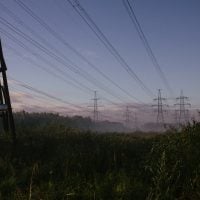Deadline: 14-Oct-23
UN Women has announced a call for proposals to develop a climate-informed, trauma-informed, gender/age-sensitive Peace-Building Training Manual to be used in the implementation of the Gender and Climate Security Project in Bor, Pibor and Malakal funded by PBF, project implemented together with IOM and FAO.
UN Women is implementing a “Local Solutions to Climate Resilience and Advancing Peace and Stability in Bor, Pibor and Malakal” project to advance peace and stability through integrated and jointly implemented interventions between IOM, FAO, and UN Women, involving stakeholders on multiple levels (i.e., individual, household, community, local, city, subnational, Organizational, and national).
The UN Women South Sudan Country Office (CO) proposes to partner with an organization to develop a climate-informed, trauma-informed, and gender/age-sensitive peacebuilding training manual. The Organization will work closely with the Women, Peace and Security Officer and Programme Analyst, Monitoring & Evaluation Reporting Specialist, under the supervision of the Deputy Country Representative, to develop a training manual that is relevant to the needs of South Sudanese communities and can help build climate resilience and prevent conflict.
More specifically, the project is designed to bolster three ‘resilience capacities’ through outcomes one to three in the targeted areas:
- absorptive capacities for communities to take protective action to anticipate, plan and recover from shocks such as climate shocks;
- adaptive capacities for communities to make incremental adjustments, modifications to adapt to climate shocks without a significant change in their lifestyle;
- transformative capacities to create sustainable structures that systematically respond to stressors and shocks.
Objectives
- The strategic objectives of the Peacebuilding training manuals are:
- To identify community-driven solutions that could address the exacerbating effects of climate shocks on existing conflict dynamics and explore avenues for their inclusion in the peace process.
- To serve as a tool for training and engaging communities in dialogues to address the root causes of conflict dynamics and pave the way for implementing climate-informed gender and age-sensitive peacebuilding and resource management.
- Providing training on gender/age-sensitive, climate-informed peacebuilding will empower women and youth in assuming decision-making roles in peacebuilding, thereby promoting gender equality and the empowerment of women and girls in peacebuilding and Climate Security.
- To equip communities with the knowledge and skills to address the complex challenges of peacebuilding in a changing climate and to heal from the trauma of conflict and violence.
- The implementing partners will use the manual for holding engagements, dialogues, and training on gender-sensitive- peacebuilding.
Functions
- Phase I – Develop a climate-informed, trauma-informed, and gender/age-sensitive peacebuilding training manual (3 months)
- Submit inception report, which includes detailed contextual background, research design, methodology, tools, and work plan (modalities to be agreed on by UN Women), which will reflect the following critical consultation:
- The Ministry of Peacebuilding and other line ministries, including the Ministry of Gender, Child, and Social Welfare (MGCSW) will ensure that the manual reflects critical national priority areas, is gender sensitive/gender responsive and aligns with national peacebuilding agendas and existing training and educational materials.
- (Project Partners) IOM, FAO and UN Women to build on already existing peacebuilding knowledge products.
- Community Level stakeholders in Bor, Pibor and Malakal
- Present an annotated chapter structure for the manual covering topical issues and shocks and how solutions will be delivered.
- Develop the manual and share it for review and comments with the project partners (UNW, IOM and FAO)
- Submit inception report, which includes detailed contextual background, research design, methodology, tools, and work plan (modalities to be agreed on by UN Women), which will reflect the following critical consultation:
- Phase II – Facilitate both internal meetings and external validation workshops` to review the manual with critical stakeholders and produce a final manual incorporating comments from the validation workshop. (6 weeks)
- Act as lead facilitator for both internal and external validation workshops
- Compile the feedback from the validation workshops and incorporate it into the final manual document.
- Do a pilot testing of the manual on select participants before the final rollout of the manual.
- Phase III – Facilitate the Training of Trainers (TOT) at the community level on the Peacebuilding Training Manual (6 weeks)
- Pilot training in Bor, Malakal and Pibor Ministry of Peacebuilding representatives and responsible partners on the developed Peacebuilding Training Manual.
- Hold a feedback session on the Manual with the Participants and Stakeholders
- Incorporate the feedback sessions into the Manual.
- Roll out training in Bor. Malakal and Pibor
Funding Information
- The budget range for this proposal should be 150 000 – 200 000 USD.
Timeframe
- Start date and end date for completion of required services/results – 6 months from the start of the project.
Component Output
- The successful applicant shall contribute to the following output through the listed deliverables.
- Output 1 – Enhanced local capacities for conflict mitigation and natural resource management for targeted groups, including women and youth groups.
Expected Deliverables
- Climate-informed, Trauma-informed, Age/Gender-sensitive Peacebuilding Training Manual developed.
- Validation of the Climate-informed, Trauma-informed, Age/Gender-sensitive Peacebuilding Training Manual
- IPs and Communities in Bor, Pibor and Malakal were fully trained on using the Peacebuilding training manual.
Competencies
- Technical/functional competencies required.
- The selection of the Responsible Party will be based on the following criteria:
- At least 7 years of experience working on Peacebuilding, Climate Change, and Gender with government Organizations, line ministries and UN Agencies.
- At least 3 years of field experience in Africa and preferably in South Sudan.
- Strong experience in Climate Security, Resource Management, Peacebuilding, and trauma counselling in Peacebuilding efforts in South Sudan
- At least 7 years of experience developing training curriculums and measuring tools for capacity and peacebuilding, targeting grassroot communities in South Sudan
- Demonstrated record of achieving results, using innovative and experiential adult learning methodologies.
- Experience supporting human resource development for sub national government organisations, communities, will be of added advantage.
- Experience working with line ministries in South Sudan is a requirement.
- The selection of the Responsible Party will be based on the following criteria:
- Other competencies, which while not required, can be an asset for the performance of services.
Requirements of Project Manager/Team Leader
- Excellent research and analytical skills
- Excellent knowledge and experience in Climate Security, Resource Management, Peacebuilding, and trauma-counselling in Peacebuilding efforts
- Ability to gather and interpret data, reach logical conclusions, and present findings and recommendations.
- Excellent knowledge of contextual gender equality literature, women’s rights, empowerment and participation in leadership and decision-making, including knowledge on traditional ecological studies
- Sound practical knowledge of initiatives to promote women, peace and security, gender equality, and women empowerment.
- Knowledge and proven experience collecting and analysing data from relevant stakeholders in climate security and working in Pibor, Malakal and Juba
- Excellent research and analytical skills
- Excellent networking and communication skills
- Excellent ICT knowledge and writing and presentation skills
For more information, visit UN Women.









































